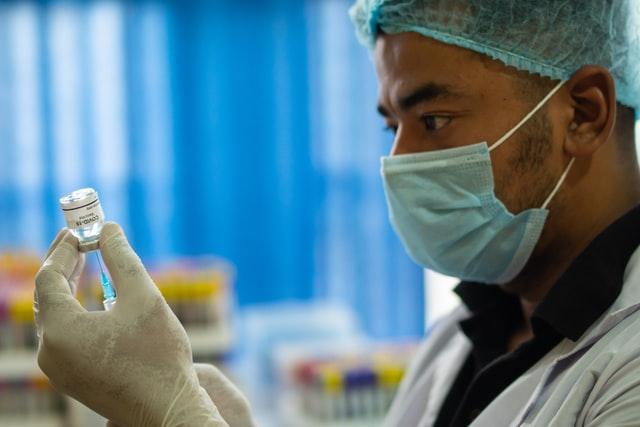Those of you who’ve been following news about the different COVID vaccines have doubtlessly read about the Johnson & Johnson vaccine.
The Johnson & Johnson vaccine was authorised back in the end February of 2021, more than two months after Moderna’s and Pfizer’s vaccines were authorized.
And at this point, about 14 million Americans have received the Johnson & Johnson vaccine.
The vaccine gained attention for being a single dose vaccine, as opposed to the Pfizer vaccine, which is a double dose vaccine, but Johnson & Johnson has also run into a few snags with their vaccine.
Along the way, for example, you may remember that it was paused for a brief period as side effect risks were being evaluated—though it was also later determined that those particular side effects were very rare, and the use of the vaccine was unpaused.
At this point, the J&J vaccine still operates under emergency use authorization. It isn’t a fully FDA approved vaccine, like the Pfizer vaccine, though they have started steps toward full FDA approval.
With all of that being said, a recent new development may put the Johnson & Johnson vaccine closer in line with a higher effectiveness rate than was previously observed.
And it may come in the form of a booster shot.
According to a recent CNN news report, a Johnson & Johnson booster shot prompted large increases in immune responses in studies.
Here are the details.
Johnson & Johnson Boosters
According to Johnson & Johnson, booster doses of their vaccine generated huge spikes in antibodies, which are basically the frontline immune system’s defense against infection.
In these studies, people who got a booster six to eight months after their initial vaccine saw an amazing antibody increase that was nine fold higher than those measured 28 days after the first shot.
This data comes from a study involving 2000 or so people who got booster doses after being dosed with their first Johnson & Johnson vaccine.
What Makes The Johnson & Johnson Vaccine Different From The Pfizer Model?
The Johnson & Johnson vaccine operates a bit differently than the Moderna or Pfizer vaccines.
The Moderna and Pfizer vaccines use a messenger (RNA or mRNA) encased in small lipid particles to carry instructions to the body to start an immune response.
But the Johnson & Johnson vaccine uses a different vehicle, a crippled common cold virus, also called an adenovirus.
Ever since the Johnson & Johnson vaccine was developed, there’s been a sort of theoretical worry that a booster wouldn’t work because it was suspected that the body may generate an immune response against the delivery vector.
However, these recent studies seem to put that theory to rest, and show that a booster shot may increase the effectiveness of the Johnson & Johnson vaccine by quite a substantial margin.
Has This Been Tested In The Real World?
With all that being said, real world efficacy has not been tested.
For example, a huge spike in antibodies is a good sign.
But it doesn’t necessarily equate to protecting a person from a virus in the real world.
However, with that being said, it’s still a really good thing, and likely does mean that a booster shot of the Johnson & Johnson vaccine would probably provide extra protection from Covid.
And it’s also highly likely that, moving forward, studies will prove that this will be the case for people who chose to get the Johnson & Johnson vaccine, followed up by a booster.











